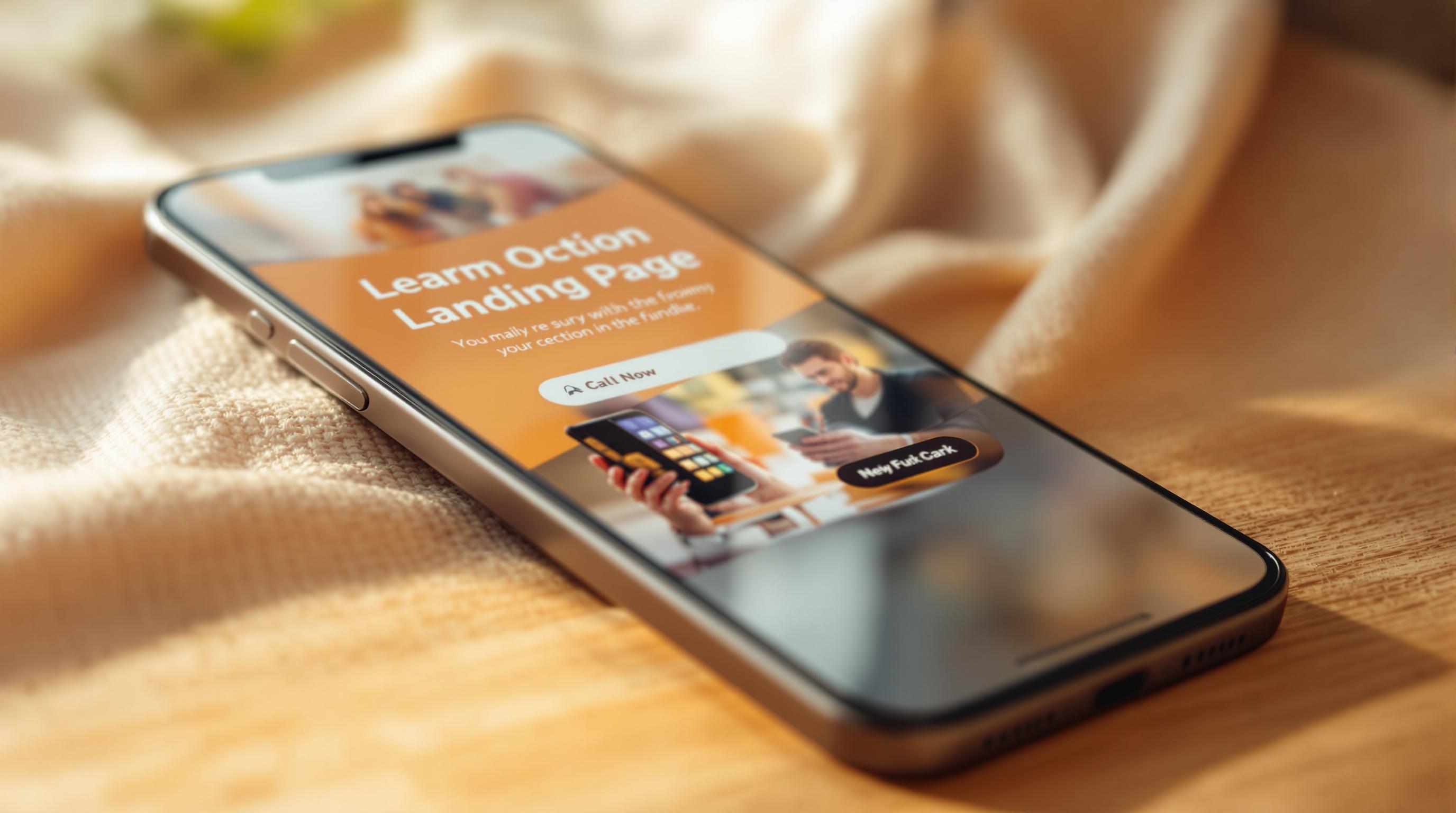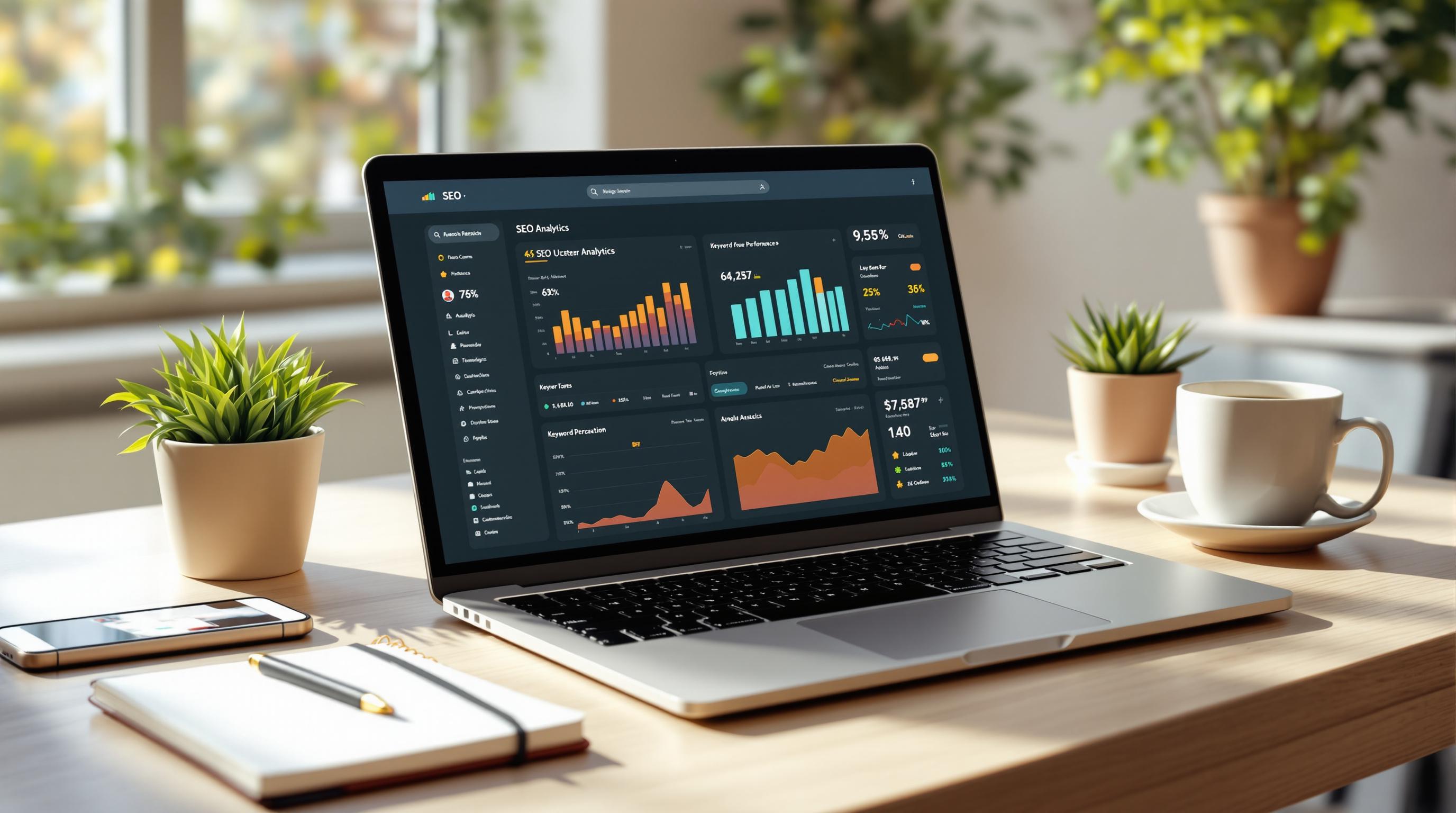Want to stand out in Phoenix’s competitive local market? These 5 local SEO strategies can help your business rank higher on Google and attract more customers:
- Optimize Your Google Business Profile (GBP): Complete and verify your profile, add Phoenix-specific details, and actively manage customer reviews.
- Use Phoenix-Focused Keywords: Incorporate location-based keywords like "Downtown Phoenix bakery" or "East Valley car repair" into your content, titles, and meta descriptions.
- Get Local Backlinks: Partner with Phoenix businesses, join local events, and list your business in Phoenix directories for quality backlinks.
- Create Phoenix-Specific Content: Write neighborhood guides, cover local news, and target search phrases like "Best restaurants in Scottsdale."
- Add Local Schema Markup: Use structured data to help search engines understand your business details, including your Phoenix address and service areas.
Quick Comparison: Local SEO vs. National SEO
| Aspect | Local SEO | National SEO |
|---|---|---|
| Target Audience | Phoenix and nearby areas | Nationwide reach |
| Keywords | Location-specific (e.g., "Phoenix AZ") | Broad industry terms |
| Competition | Local businesses only | Businesses across the country |
| Customer Intent | High intent, often immediate | Broader range of intent |
Start by optimizing your Google Business Profile and using Phoenix-specific keywords to connect with nearby customers. These steps can drive more traffic and improve your local search rankings.
Unlocking SEO Success for Phoenix Businesses
Set Up Your Google Business Profile

If you're running a business in Phoenix, having a strong Google Business Profile (GBP) can help you stand out in local search results. With 97% of people researching local businesses online before visiting, your GBP becomes a key tool for attracting customers in the area.
Complete Your Profile and Verify It
Head to business.google.com to claim your business profile. To take full control, you'll need to verify your business. This can be done through postcard, phone, email, or video. Physical locations often go with postcard verification, while service-area businesses tend to prefer email.
Add Phoenix-Specific Information
Make sure your profile includes all the details that help customers in Phoenix find and choose your business:
- Accurate address and service areas: Highlight neighborhoods like Downtown Phoenix, Scottsdale, or Tempe.
- Business hours: Include both regular and holiday schedules.
- Relevant categories: Select up to three that best describe what you offer.
Collect and Respond to Reviews
Customer reviews play a big role in improving your local SEO. Businesses with ten or more reviews tend to get 10-15% more website visits than those without [1]. Here's how to make the most of them:
- Ask for reviews through follow-up texts or emails.
- Reply to every review, whether it's positive or negative.
- Share glowing reviews on your social media or website.
Don't forget to upload high-quality photos of your business. Listings with photos are seen as more trustworthy and can drive 35% more clicks than those without [2].
Use Phoenix Location Keywords
Using the right location-specific keywords can greatly improve your visibility in local search results. With 98% of consumers turning to the Internet to find local businesses, focusing on Phoenix-specific search terms is a smart way to attract nearby customers.
Find Phoenix Search Terms
To connect with Phoenix audiences, start by identifying relevant search terms for your business and location. Tools like Google Keyword Planner can help you uncover popular phrases used by people in the Phoenix area. Here are some examples:
| Location Modifier | Business Type Example | Combined Keyword |
|---|---|---|
| Downtown Phoenix | Restaurant | Downtown Phoenix Italian restaurant |
| East Valley | Auto Repair | East Valley car mechanic |
| Scottsdale | Real Estate | Scottsdale luxury homes |
| Central Phoenix | Dentist | Central Phoenix family dentist |
Focus on keywords that show clear local intent and have a reasonable search volume to ensure you're targeting the right audience.
Add Local Area Names
Mentioning Phoenix neighborhoods and landmarks in your content can make a big difference. Instead of just saying "Phoenix", include specific areas like "Downtown Phoenix" or "East Valley." You can also reference well-known landmarks, intersections, or neighborhoods to make your content more relevant locally. This helps search engines better understand your location and connect you with nearby customers.
After adding these local details, make sure your page titles and descriptions reflect these keywords for better results.
Update Page Titles and Descriptions
Your page titles and meta descriptions should include location-specific keywords to improve your chances of appearing in local searches. For example, a title like "Jim's Plumbing – Emergency Services in Central Phoenix" can help you rank better. Keep titles within 60 characters for optimal visibility.
For meta descriptions, highlight the areas you serve in a natural and engaging way. This not only boosts your rankings but also encourages users to click on your link.
Get Local Website Links
Earning backlinks from Phoenix-based websites plays a key role in boosting your local search rankings. Just like using location-specific keywords helps search engines understand your relevance, links from local websites strengthen your authority in Phoenix. In fact, Moz research highlights high-quality backlinks as one of the top factors for local SEO success [5].
Partner with Phoenix Businesses
Teaming up with local businesses is a smart way to gain backlinks. By collaborating with non-competing businesses, you can create mutually beneficial opportunities. For instance, a Phoenix bakery might work with coffee shops, wedding planners, or event venues to create cross-promotional content.
Local First Arizona is a great resource for finding potential partners. Their network includes thousands of businesses dedicated to supporting the Phoenix community.
| Partnership Type | Benefits | Example Backlink Source |
|---|---|---|
| Guest Blog Posts | Links from quality content | Partner's blog |
| Joint Events | Listings and media coverage | Event pages or local news |
| Cross-Promotions | Featured sections on websites | Partner business websites |
Join Local Events
Attending local events can also help you earn backlinks. For example, the Greater Phoenix Chamber hosts regular business events that offer networking opportunities and increased visibility. Even if you’re not a sponsor, participating in these events can lead to backlinks from event organizers’ websites.
List in Phoenix Directories
Adding your business to trusted directories like the Phoenix Chamber of Commerce, Better Business Bureau, and Local First Arizona can improve your online presence and provide quality backlinks. Tools like Yext or Moz Local can help you manage and optimize these listings efficiently.
Getting involved in local sponsorships or community activities can further enhance your SEO efforts. Once you’ve established a solid local link profile, you’re ready to focus on creating content that truly connects with Phoenix audiences.
sbb-itb-d7fe25c
Write Phoenix-Focused Content
Crafting content specifically for Phoenix audiences can boost your local visibility and improve search engine rankings. By centering your efforts on location-specific topics and trends, you can draw in more local search traffic.
Cover Local News and Topics
Use tools like Google Trends to identify popular topics in Phoenix neighborhoods. Then, create content that addresses these current events or interests. For example, a real estate agent might write about how the new Taiwan Semiconductor Manufacturing Company (TSMC) facility is influencing housing markets in North Phoenix.
| Content Type | Purpose | Example Topics |
|---|---|---|
| News Updates | Keep readers informed | Phoenix Light Rail expansion |
| Seasonal Content | Address timely needs | Tips for handling summer heat |
| Community Events | Highlight local events | First Fridays Art Walk in Downtown |
Create Area Guides
Write neighborhood guides that offer useful information for both locals and visitors. Focus on areas like Downtown Phoenix, Scottsdale, or Tempe, and include details about attractions, dining, and amenities. For example, the Desert Botanical Garden increased its organic local traffic by 44% by publishing guides on desert-friendly landscaping tailored to Phoenix's unique climate [3].
Target Local Search Phrases
Incorporate specific neighborhood names and landmarks into your content to target localized search terms. Instead of broad keywords, focus on Phoenix-specific phrases like these:
| Search Type | Localized Example |
|---|---|
| Location-Based | Coffee shops near Biltmore Fashion Park |
| Service Area | Home services in North Central Phoenix |
| Neighborhood | Best restaurants in Roosevelt Row |
Keep your content up-to-date to reflect changes in Phoenix, such as the Phoenix Convention Center expansion or improvements at Margaret T. Hance Park.
Finally, to further boost your content's visibility, use structured data like local schema markup to help search engines better understand your pages.
Add Local Schema Code
Schema code helps search engines understand your business details, boosting your chances of showing up in Phoenix local search results.
Learn Schema Basics
For businesses in Phoenix, LocalBusiness schema is crucial. It provides search engines with structured details about your location and services. Key elements include:
| Schema Element | Purpose | Example |
|---|---|---|
| Business Type | Defines your industry | Restaurant, Plumber, Attorney |
| NAP Details | Basic business information | Name, Address, Phone number |
| Geo Coordinates | Exact location data | Latitude and longitude for Phoenix location |
Set Up Business Schema
To implement schema, use Google's recommended JSON-LD format. Here's an example:
{
"@context": "http://schema.org",
"@type": "Plumber",
"name": "Diamondback Plumbing",
"address": {
"@type": "PostalAddress",
"addressLocality": "Phoenix",
"addressRegion": "AZ",
"postalCode": "85023",
"streetAddress": "17423 N 25th Ave"
},
"telephone": "6026743255",
"openingHours": "Mo-Su"
}
Add Phoenix Business Details
To make your schema even more effective, include:
- A complete Phoenix address in the correct format
- A local phone number with a Phoenix area code (602, 480, or 623)
- Business hours formatted properly
- Service area details, such as "Greater Phoenix Area"
After adding the schema, use Google's Rich Results Testing Tool to ensure everything is set up correctly. Considering that 46% of Google searches are for local information [4], schema markup is a smart way to improve your visibility in Phoenix's local search results. Pairing it with other strategies will further enhance your presence.
Conclusion: Next Steps for Phoenix SEO
Ready to boost your local business growth in Phoenix? Here's how to put these strategies into action.
Start by auditing your Google Business Profile. Make sure your Name, Address, and Phone (NAP) details are accurate. Businesses with complete profiles get 2.7x more website visits than those with incomplete listings [6].
Leverage tools like Google Analytics and Search Console to find Phoenix-specific keywords. Focus on terms tied to neighborhoods and landmarks. Want to connect with the local community? Join groups like the Greater Phoenix Chamber of Commerce or attend events like First Fridays in downtown Phoenix.
Create content that reflects your local expertise. Think neighborhood guides, event coverage, and insights into Phoenix's business scene.
Use schema markup to structure your business details for search engines. Double-check it using Google’s testing tool to ensure everything’s in place.
Here’s where to focus your efforts:
- Optimize your Google Business Profile (GBP)
- Create locally-focused content
- Implement schema markup
- Build quality links
- Track performance metrics
Keep an eye on your local rankings, Phoenix-area traffic, and conversion rates to see how well your efforts are paying off.
FAQs
What is the difference between local SEO and national SEO?
Local SEO is all about attracting customers in a specific area, like Phoenix, while national SEO aims to reach people across the entire country. This difference is key for businesses deciding how to approach their optimization efforts.
Mobile and Local Searches: Did you know nearly one-third of mobile searches are location-based? This makes local SEO especially important for Phoenix businesses looking to connect with nearby customers.
Here’s a quick breakdown:
| Aspect | Local SEO | National SEO |
|---|---|---|
| Primary Target | Customers in the Phoenix area | Nationwide audience |
| Key Elements | Google Business Profile, local citations, Phoenix-focused content | Broader content, national backlinks |
| Business Type | Local stores, service providers | E-commerce, digital services, big brands |
Local SEO helps drive foot traffic by linking nearby customers to your business. The main difference lies in whether your audience is searching locally for in-person visits or online for broader, national services.
For Phoenix businesses, focusing on local strategies like maintaining an optimized Google Business Profile and creating Phoenix-specific content can make all the difference. These efforts help you connect with nearby customers and stand out in your local market.


